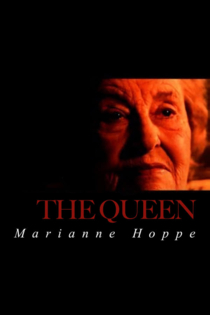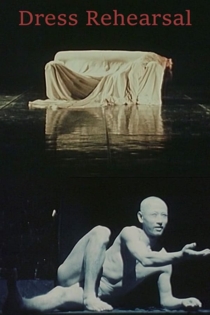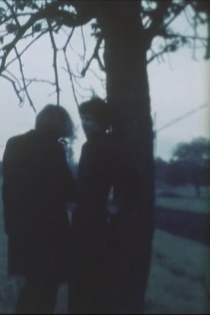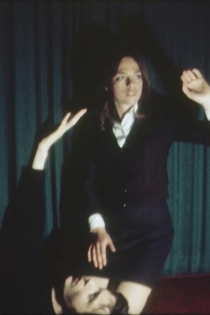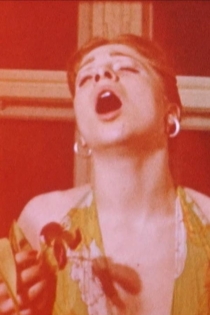
Werner Schroeter
1945 - 2010Description above from the Wikipedia article Werner Schroeter, licensed under CC-BY-SA, full list of contributors on Wikipedia.
Mona Lisa
Werner Schroeter
"My camera was silent, and so I started to compose wild sound collages for my films from my records with the help of tape, for example with my favorite Callas arias. I even got her to sing with herself that way. I also contrasted Schlager scraps of the Caterina Valente, whom I adore, and Christmas carols with the pictures. I cannot interpret what began then. I am an artist, I work intuitively." - Werner Schroeter
Mona Lisa
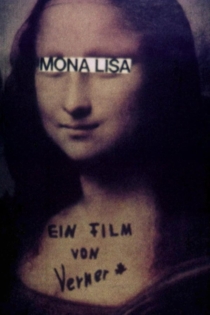
Der lachende Stern
Werner Schroeter
One of the most caustic and personal essay films ever made, Werner Schroeter's account of the 1983 Manila Film Festival, presided over by Imelda Marcos, chronicles the legacy of American and Spanish imperialism as it presents a "kaleidoscope of a ravaged country."
The Laughing Star
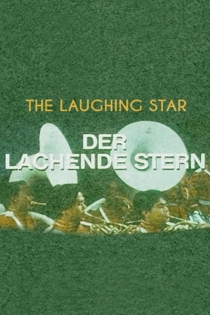
Welt am Draht
Rainer Werner Fassbinder
Klaus Löwitsch, Barbara Valentin
Институт кибернетики создал революционный суперкомпьютер — Симулакрон, с помощью которого можно моделировать целые миры и населять их искусственными людьми. Изначально Симулакрон должен был использоваться в благих общественных целях, но глава Института Сискинс начинает осуществлять свои корыстные планы. Помешать Сискинсу, а также разгадать ряд тайн и загадок вокруг суперкомпьютера должен гений компьютерных технологии Фред Штиллер…
Welt am Draht

Abfallprodukte der Liebe
Werner Schroeter
Isabelle Huppert, Carole Bouquet
German director Werner Schroeter invited his favourite opera singers to a 13th century abbey near Paris. There was no pre-planned action. There was no script, no continuity. On the other hand, there were precise constraints that provided the rules of the game: the setting, the Abbey of Royaumont, and the chosen participants. Each singer came accompanied by a person of his or her choice, and worked on an aria chosen by the director.
Love’s Debris

Daniel Schmid - Le chat qui pense
Pascal Hofmann, Benny Jaberg
Daniel Schmid, Ingrid Caven
When director Daniel Schmid grew up, his parents ran a hotel in the Alps, and this singular setting was to influence his film. Rather by coincidence he came to Berlin in the early 1960s and became part of the new German wave. Schmid worked with, among others, Wenders and Fassbinder, for example as an actor in Wender’s The American Friend. He met Ingrid Caven, who was to play a diva in several of his films. This is a documentation of a part of modern European film history and a good analysis of artistry and how it corresponds to the individual behind the camera. A wealth of archival footage brings us close to many directors and actors in Schmid’s circle. If you’ve never seen a Daniel Schmid film, you are sure to want to after watching this portrait of his life.
Daniel Schmid: Le Chat Qui Pense
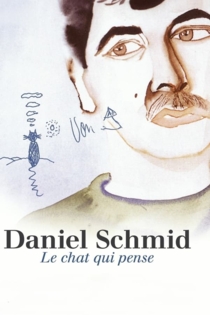
Johannas Traum
Werner Schroeter
Magdalena Montezuma, Candy Darling
With the ascetic grandeur of Carl Th. Dreyer’s The Passion of Joan of Arc, Schroeter evokes the visions of Saint Joan, partly through unused footage of Darling and Caven pantomiming in his 1972 film The Death of Maria Malibran. - MoMA
Johannas Traum
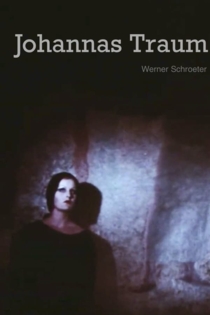
De l'Argentine
Werner Schroeter
Ronnie Arias, Norma Aleandro
Documentary on State terrorism during the last military dictatorship in Argentina, made in its aftermath. Invited by the Goethe-Institut to hold a workshop with young film students, Schroeter contrasts the official statements of the regime with the testimony of victims, dissidents and relatives of the disappeared. And trust that their faces and words will resonate much more than a mere representation of violence.
For Example, Argentina
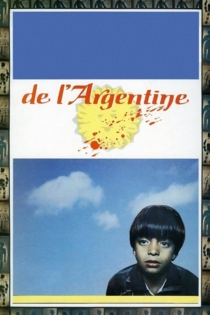
Salome
Werner Schroeter
Mascha Rabben, Magdalena Montezuma
Schroeter's virtuosic staging of the Oscar Wilde tragedy is a complex montage of image and sound, filmed on the grand steps of Baalbeck, the ancient Roman temple in Lebanon, and interweaving Lebanese and German folk songs with the music of Verdi, Wagner, Strauss, Mozart, Bellini, and Donizetti. Elfi Mikesch, the cinematographer of Schroeter’s later films, designed the film’s sumptuous costumes. A contemporary critic for Le Monde wrote admiringly of Schroeter’s depiction of "the deadly struggle between dark Christian morality and luminous paganism.“
Salome
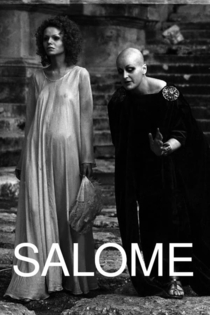
Goldflocken
Werner Schroeter
Magdalena Montezuma, Ila von Hasperg
Werner Schroeter's rhapsody of excess leaps from 1949 Cuba to contemporary France to points in between, while its feverishly shifting visual style evokes and parodies everything from kitschy Mexican telenovelas to silent French art films.
Goldflocken
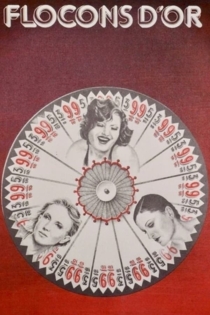
Mondo Lux - Die Bilderwelten des Werner Schroeter
Elfi Mikesch
Werner Schroeter, Rosa von Praunheim
Werner Schroeter was one of the most significant proponents of New German Cinema. Schroeter was diagnosed with cancer in 2006. In her film, Elfi Mikesch, who photographed a number of Schroeter’s films and who collaborated closely with him to create his vision, provides us with an intimate insight into Schroeter’s artistic output during the remaining four years of his life.
Mondo Lux: The Visual Worlds of Werner Schroeter

Les Ministères de l'art
Philippe Garrel
Chantal Akerman, Juliet Berto
Philippe Garrel’s documentary on France’s second wave of masterful filmmakers. Featuring Jean Eustache, Chantal Akerman, André Téchiné, Leos Carax, Jacques Doillon and Benoit Jacquot.
The Ministries of Art
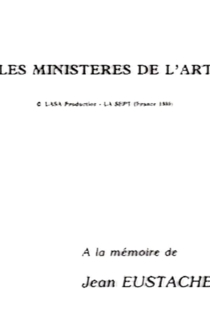
Die Königin - Marianne Hoppe
Werner Schroeter
Marianne Hoppe, Maren Eggert
Werner Schroeter's lovely and touching portrait of the great German actress Marianne Hoppe, whose career spanned from the glory days of the Weimar era through the Nazi years to a postwar return to the stage in Shakespeare, Tennessee Williams, and experimental productions by Robert Wilson and Heiner Müller.
The Queen – Marianne Hoppe
